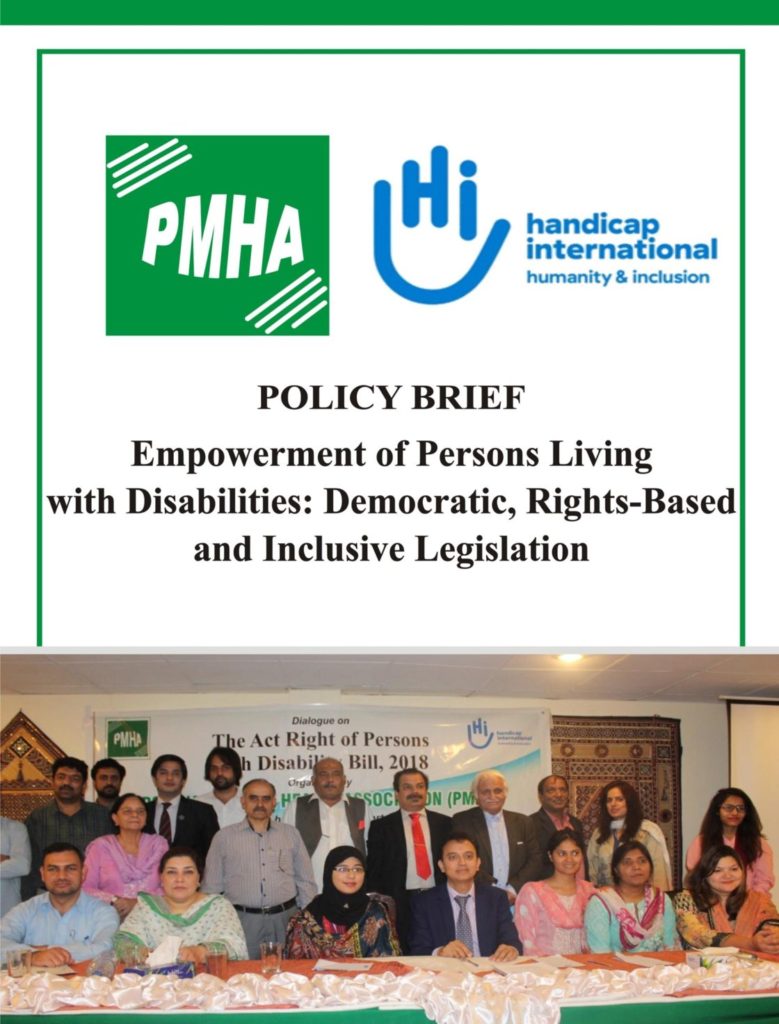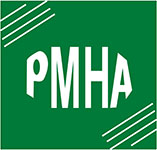Friendship HOUSE (Clubhouse for Mental Health)
The concept of Clubhouse for person with a history of mental illness was originally developed by Fountain House, New York, in 1947. It was taken up by Lahore Mental Health Association under the leadership of (late) Prof. Muhammad Rashid Chaudhry, was established who established Fountain House Lahore in 1978. Dr. Laeeq Mirza (Ph.D. Psychology is serving as Consultant Clinical Psychologist at Shifa International Hospital since 1996. He is also offering services to National Trust for Disables (NTD) as Consultant Psychologist since 2001) served it as Joint Director for 14 years during its formative period and worked in close collaboration with Fountain House, New York.
Clubhouse Programme
Friendship House Islamabad is trying to follow as closely as possible the ideology and programme of Fountain House, New York. The actual nature of activities are designed and arranged in the light of local norms of behavior, attitude of the affected families and society at large. A pioneer programme has an ambassadorial role in a new environment and has to be initially designed as a research-cum-demonstration project. In the case of Pakistan, this period of preparing the ground was prolonged by the stigma still attached to mental illness. Recent pharmacological break-through in the treatment, particularly for schizophrenia and depression, has gradually reduced the need for prolonged hospitalization. As a result, there has been a worldwide movement for the closure of mental hospitals and establishment of psychiatric units in general hospitals. The process demands collaborative efforts and team work among psychiatrists, psychologists, social workers along with parents and NGOs, interested in the welfare of community and individuals.
Components of Day-programme of the House
Main areas of activities in a day programme are:
Pre Vocational Training
Programme for pre-vocational / vocational training has been initialized for members who have shown sufficient improvement through day-programmes for vocational training, suitable members are placed with business / industrial concerns in local market for further improvement in real life setting. In the initial stage two members were placed on part time basis. This program is going well.
Opportunity to develop work habits is provided through a semi-structured programme of individual and group activities. The objective is to make the persons, in a state of social withdrawal and inactivity as result of the combined effect of illness and prolonged medication, to share responsibilities connected with the maintenance and running of the House
In order to achieve this objective, the Clubhouse is organized into the following units:
Maintenance Unit:
Activities include cleaning, dusting, small repairs, gardening etc.
Kitchen and Snack Bar Units:
They are responsible for preparing and serving teas, snacks and mid-day meals to Club-Members and visitors.
Communication Unit
Responsibilities of this unit include preparation of material for Friendship House Newsletters, work with computers, photocopier along with taking of telephone messages and maintenance of record of daily / monthly attendance etc.
Vocational Training (VT) / Transitional Employment Programme (TEP)
The day programme is aimed at developing healthy and cooperative work habits in a supportive environment. Once Club members are considered ready to take up the challenge of work outside Friendship House in business and commercial set-up, this is arranged through Vocational Training (VT) Transitional Employment Programme (TEP). In essence both of these programmes are trials in real life situation according to a pre-arranged scheme.
Vocational training is meant for those who have a clear choice and aptitude for work. This is arranged with government and private training institutes through the mediation of Friendship House staff. If the main objective of placement is the assessment of potential for work of a specific demand and nature, then this is done through a scheme of reserved slots at workplaces with the idea of assessment of work readiness is controlled conditions (TEP). The person is placed at a proper job when he is considered ready for it and the TEP slot is used for the assessment of another Clubhouse member.
Other Areas of Activities
Counseling Services to families and Help Seekers
Help is being extended to local as well as others not only in the areas of mental health but also general health in collaboration with Shifa International Welfare Clinic without Charges or at nominal charges. Even surgical cases have received helped.
Telephone Counseling
A number of prominent psychologists, counselors (five persons with Ph.Ds) have volunteered to provide guidance and counseling on telephone to help seekers. A ‘Referral System’ on personal telephones of the named experts has been developed.
Vocational training is meant for those who have a clear choice and aptitude for work. This is arranged with government and private training institutes through the mediation of Friendship House staff. If the main objective of placement is the assessment of potential for work of a specific demand and nature, then this is done through a scheme of reserved slots at workplaces with the idea of assessment of work readiness is controlled conditions (TEP). The person is placed at a proper job when he is considered ready for it and the TEP slot is used for the assessment of another Clubhouse member.
Female Functional Literacy Program
A functional literacy programme, particularly for adults and dropped out children belonging to nearby “Katchi Abadis” was initiated in April 2002, Mrs. M. K. Mirza wife of Dr. Laeeq Mirza Project Director Friendship House took up the challenge of starting and Adult Functional Literacy Program in the afternoons with the hired teachers from the catchment area. This programme like the Friendship House Day-Programme is being run by contributions by small group of friends, without approaching so far the Adult Literacy Programme or other donors.
Policy Brief

Empowerment of Persons Living with Disabilities Democratic, Rights-Based and Inclusive Legislation
